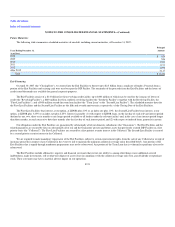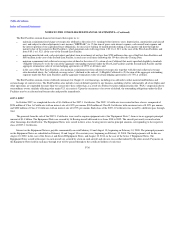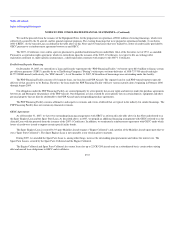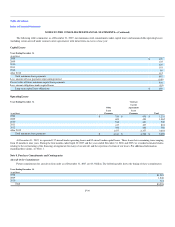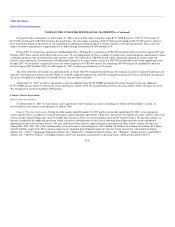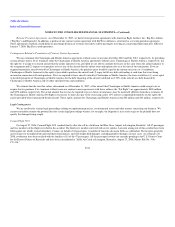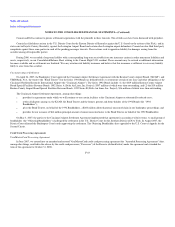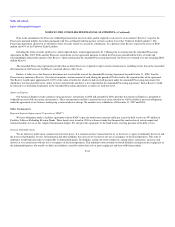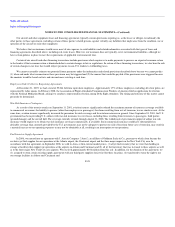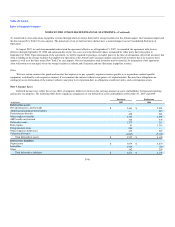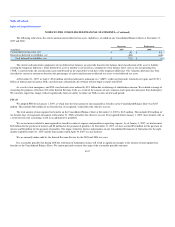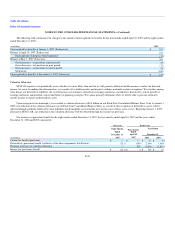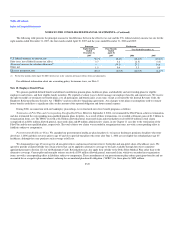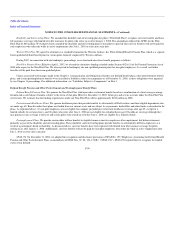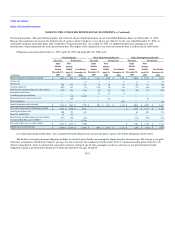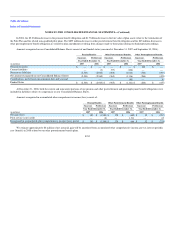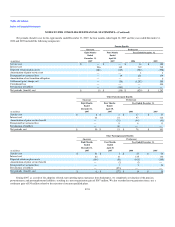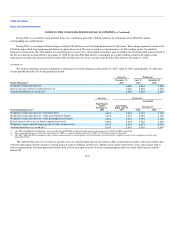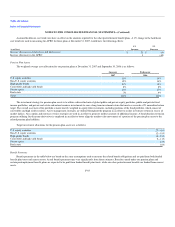Delta Airlines 2007 Annual Report Download - page 105
Download and view the complete annual report
Please find page 105 of the 2007 Delta Airlines annual report below. You can navigate through the pages in the report by either clicking on the pages listed below, or by using the keyword search tool below to find specific information within the annual report.
Table of Contents
Index to Financial Statements
NOTES TO THE CONSOLIDATED FINANCIAL STATEMENTS—(Continued)
Our aircraft and other equipment lease and financing agreements typically contain provisions requiring us, as the lessee or obligor, to indemnify the
other parties to those agreements, including certain of those parties' related persons, against virtually any liabilities that might arise from the condition, use or
operation of the aircraft or such other equipment.
We believe that our insurance would cover most of our exposure to such liabilities and related indemnities associated with the types of lease and
financing agreements described above, including real estate leases. However, our insurance does not typically cover environmental liabilities, although we
have certain policies in place to meet the requirements of applicable environmental laws.
Certain of our aircraft and other financing transactions include provisions which require us to make payments to preserve an expected economic return
to the lenders if that economic return is diminished due to certain changes in law or regulations. In certain of these financing transactions, we also bear the risk
of certain changes in tax laws that would subject payments to non-U.S. lenders to withholding taxes.
We cannot reasonably estimate our potential future payments under the indemnities and related provisions described above because we cannot predict
(1) when and under what circumstances these provisions may be triggered and (2) the amount that would be payable if the provisions were triggered because
the amounts would be based on facts and circumstances existing at such time.
Employees Under Collective Bargaining Agreements
At December 31, 2007, we had a total of 55,044 full-time equivalent employees. Approximately 17% of these employees, including all of our pilots, are
represented by labor unions. In February 2008, the Association of Flight Attendants/Communication Workers of America filed an application for election
with the National Mediation Board, asking it to conduct a representation election among Delta flight attendants. The timing and outcome of this matter cannot
presently be determined.
War-Risk Insurance Contingency
As a result of the terrorist attacks on September 11, 2001, aviation insurers significantly reduced the maximum amount of insurance coverage available
to commercial air carriers for liability to persons (other than employees or passengers) for claims resulting from acts of terrorism, war or similar events. At the
same time, aviation insurers significantly increased the premiums for such coverage and for aviation insurance in general. Since September 24, 2001, the U.S.
government has been providing U.S. airlines with war-risk insurance to cover losses, including those resulting from terrorism, to passengers, third parties
(ground damage) and the aircraft hull. The coverage currently extends through August 31, 2008. The withdrawal of government support of airline war-risk
insurance would require us to obtain war-risk insurance coverage commercially, if available. Such commercial insurance could have substantially less
desirable coverage than currently provided by the U.S. government, may not be adequate to protect our risk of loss from future acts of terrorism, may result in
a material increase to our operating expenses or may not be obtainable at all, resulting in an interruption to our operations.
Fuel Inventory Supply Agreement
In 2006, we entered into an agreement with J. Aron & Company ("Aron"), an affiliate of Goldman Sachs & Co., pursuant to which Aron became the
exclusive jet fuel supplier for our operations at the Atlanta airport, the Cincinnati airport and the three major airports in the New York City area. In
accordance with this agreement, in September 2006, we sold to Aron, at then current market prices, (1) all jet fuel inventory that we were then holding in
storage at facilities that support our operations at the airports in Atlanta and Cincinnati and (2) all jet fuel inventory that was in transit to these airports as well
as to the three major New York City area airports. We received approximately $102 million from this sale. In addition, for the duration of the agreement, we
(1) assigned to Aron certain existing supply agreements with our third party suppliers for jet fuel for these locations, (2) transferred to Aron the right to use
our storage facilities in Atlanta and Cincinnati and
F-45


